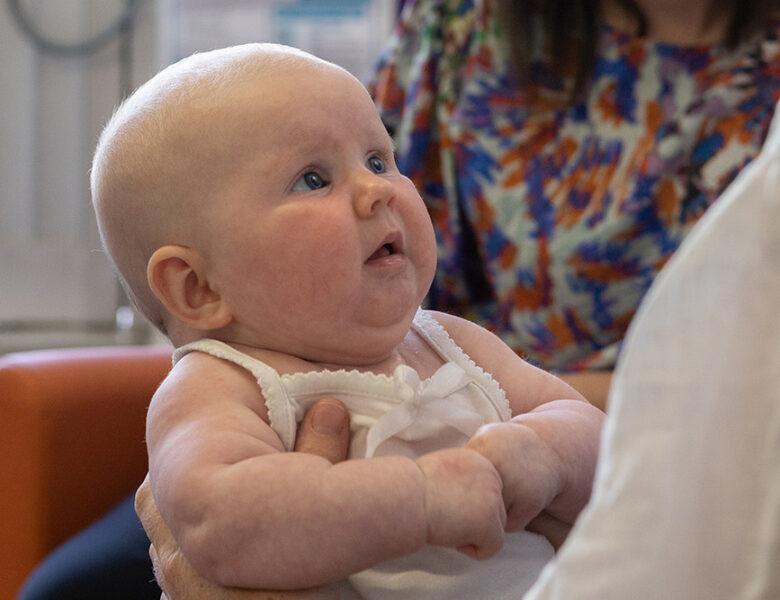Wrap-around care for vulnerable babies
Some of the most vulnerable babies in South Australia will now have access to coordinated care thanks to the new million-dollar Cocoon Program, funded by the Women’s & Children’s Hospital Foundation (WCH Foundation).
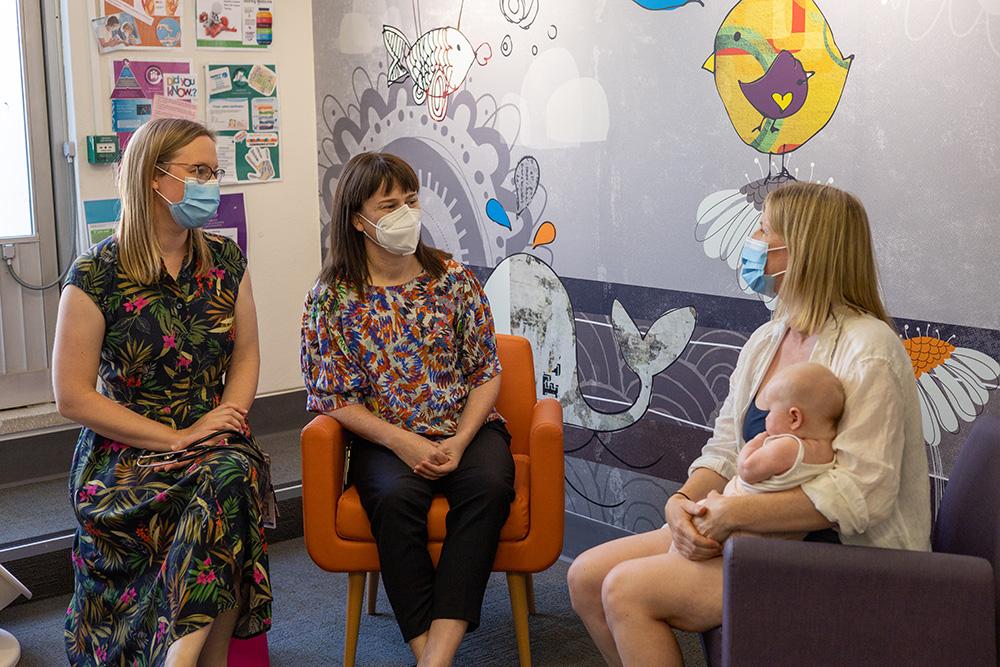
Dr Keir with a baby representing *Ava.
Cocoon Program
The WCH Foundation Cocoon Program is a dedicated clinic for babies under 12 months who are both medically vulnerable and in foster care, or at risk of entering foster care. This is the pilot program’s first year.
Babies and their caregivers will receive support from a specialised team in one clinic rather than care-givers needing to attend multiple appointments on different days. It is hoped that this approach will improve the overall care experience for families and care-givers by meeting an infant’s emotional, physical, and mental health care needs.
Dr Amy Keir is a Consultant Neonatologist at the Women’s and Children’s Hospital and the lead Neonatal Paediatrician who will be part of the Cocoon Program.
She says, “The program aims to provide a cocoon around babies in foster care so that they can easily access a coordinated team to meet their healthcare needs.”
The Cocoon team comprises a specialised Clinical Coordinator, a Neonatal Paediatrician, a General Paediatrician, an Infant Mental Health Clinician and a Senior Physiotherapist.
“The idea is that all the health care providers are together and can look after the baby in partnership. We’re also able to build connections with all of the other care-givers and providers that might be in their life,” Dr Keir says.
“The importance of the program is to provide one of the most vulnerable cohorts of babies in South Australia the highest possible coordinated health care in those critical early months of their life.”
“It allows us to identify if there are any developmental challenges or risks, and allows them to seamlessly access allied health services, as well as other services that may be more difficult to access from a community perspective or when care is disjointed.”
The addition of an Infant Mental Health Clinician to the clinic will be a first for the Hospital.
“People often don’t think about babies having mental health, but babies who have come from situations that may have been quite traumatic are at the most risk of challenges in this area, both as a baby and as they grow,” Dr Keir says.
“The opportunity to build this role into the clinic is incredibly exciting, and I’m confident it will make a significant difference.”
It is estimated that approximately 50 to 60 babies each year will benefit from this program and it will grow as the program expands.
“Babies in foster care remain at risk of attachment challenges, as well as a number of health care problems that might not be realised around the time of their birth,” Dr Keir says.
“I truly hope that through this coordinated approach and our ability to work together with care-givers and other care providers outside of the Hospital, we’re going to help give these vulnerable babies the best possible start in life and to prevent further complexities from developing down the track.”
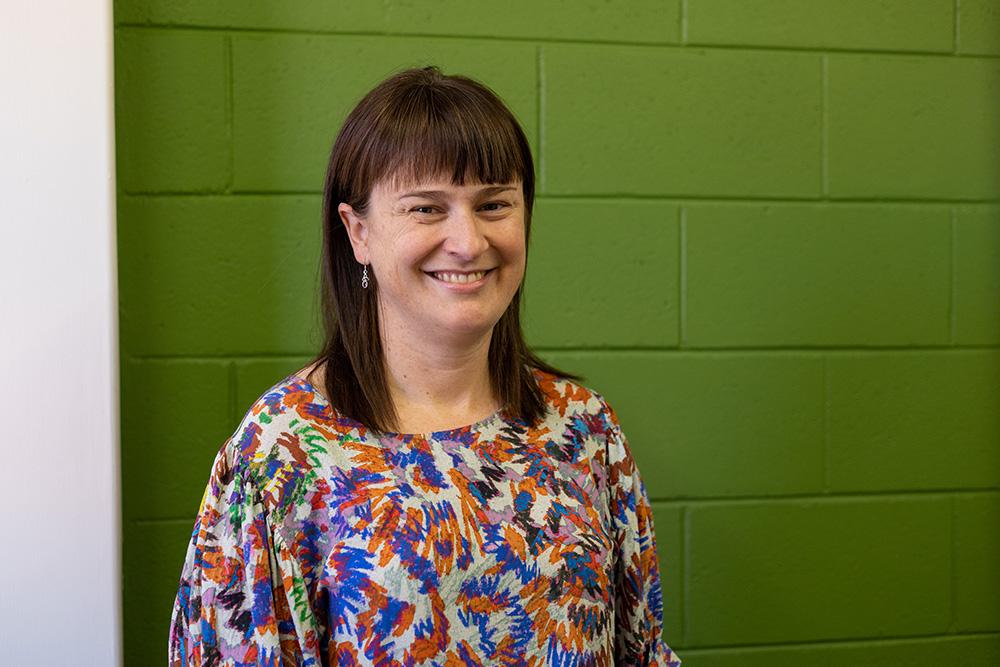
Dr Amy Keir, Consultant Neonatologist.
Baby Ava
Baby Ava* is a newborn baby recently discharged from Women’s and Children’s Hospital into foster care as her birth parents are not able to care for her for complex reasons.
Her aunt, who is caring for her, was worried about her noisy breathing and feeding. Ava was seen soon after discharge by a dedicated healthcare team at the Women’s and Children’s Hospital – the Cocoon team. Her aunt found this reassuring as the Cocoon team was aware of her birth history, what happened during pregnancy for her mother and any health conditions she may be at risk of developing.
The Cocoon team cares for Ava in partnership with her aunt and Ava’s Child and Family Health Service (CaFHS) nurse to monitor her growth and development. She accesses Allied Health services at the Hospital quickly, and information is shared amongst her healthcare workers and other providers to allow them to work together to support her healthcare needs effectively.
Ava and her aunt access support from the Infant Mental Health Clinician as part of the Cocoon team. This further supports her aunt in caring for Ava, who is sometimes unsettled. Ava has a complex family background that can potentially impact her in complex ways. The Infant Mental Health Clinician supports her aunt in understanding how best to help her and provides support for any care transitions Ava may experience as a young infant.
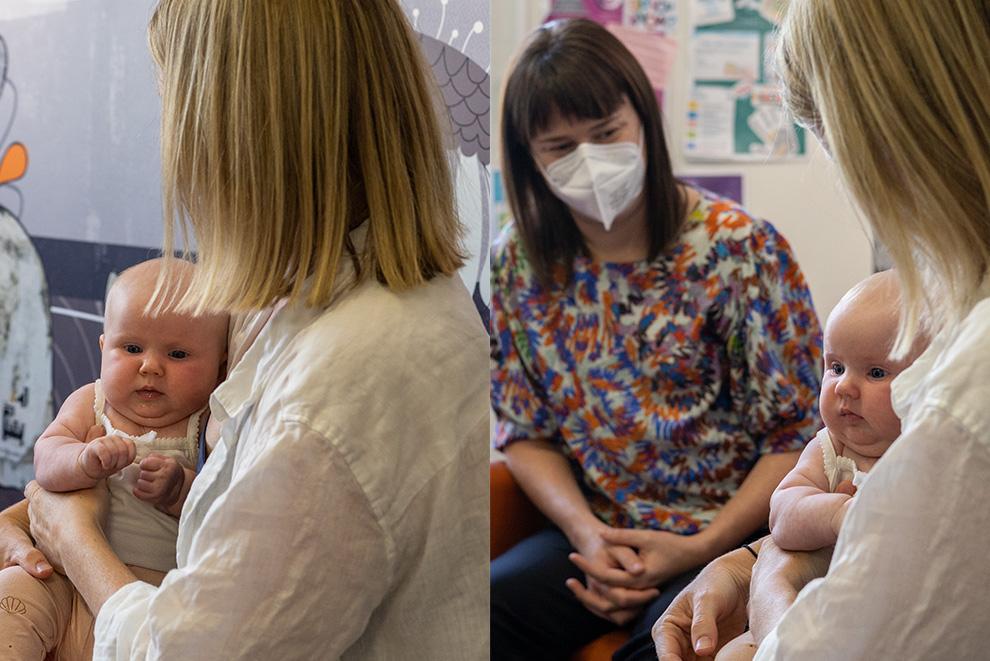
A mother and baby representing *Ava and her aunt.
Hospitals United for Sick Kids
The WCH Foundation has committed over $1 million of funding towards the Cocoon Program over the next three years.
Funds raised by Hospitals United for Sick Kids through the sale of ‘Mum’s Sause’ products and donations cards at Coles, select bucket hats at Lowes, and Swisse multivitamins will contribute to the Cocoon Program’s cost.
Hospitals United for Sick Kids is Australia’s only national alliance of hospitals for children, foundations and paediatric services to help sick kids get home and back to the things they miss.
Dr Keir says, “We are potentially going to be able to reduce the chances of young infants needing to come into hospital. We’ll be able to coordinate their care closer to where they’re living, so they potentially don’t need to come into the hospital for additional investigations or checks of their health.”
“We can ensure that when they come in for their clinic visits, they get everything done simultaneously. So instead of having to come to the hospital across a number of days in one week, they can come for one morning or one afternoon.”
“There’s also the likelihood that we’ll be able to identify healthcare problems earlier and hopefully prevent needing to come into hospital. And if there is a situation where a young infant does need to come into hospital, they should be able to stay for shorter periods because they already have a team looking after them and ready to go for post-discharge follow-up.”
To learn more about how you can help, follow @hospitalsunitedforsickkids on Instagram.
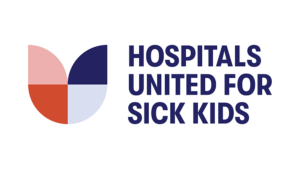
*While names and images have been changed for privacy, this situation is very real and reflects how important your generosity is for supporting brilliant care for vulnerable babies.
Back to all news

